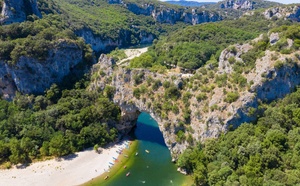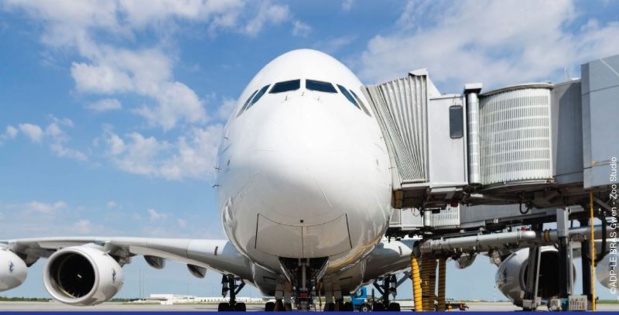
The group Paris Airports is going to invest 4.6 billion euros on the improvement of its infrastructures. @ADP-Le Bras Gwen Zoo Studio
Augustin de Romanet refuses to bear the responsibility for the crisis at Air France.
Obviously very irritated of being the subject of vivid critics for many weeks, the CEO of the Paris Airports does not want to be seen “as a scapegoat or troublemaker.”
Quite the opposite, he ensures doing everything possible to support the company in these difficult times, thanks to investments that will enable it to be more efficient.
In this way, he revealed on Tuesday October 13th, 2015, the details of his development plan, named Connect 2020.
Indeed, the Paris Airports group anticipates to spend 4.6 billion euros over five years in order to improve its infrastructures.
On the program: the fusion of the Terminal 1 satellites, rehabilitating Terminal 2B, renovating the landing strips and Orly’s Hall A, setting up new baggage drop-off zone, and automatic boarding.
It also expects to improve the delivery of luggage at the terminal 2E with a new conveyor belt that will transport 4,000 bagages per hour. A spending of 300 million euros thanks to which passengers should be able to retrieve their belongings in just 22 minutes.
All of these investments aim at improving the productivity of the two Parisian platforms to enable companies to be more efficient, while cutting down operating costs.
Obviously very irritated of being the subject of vivid critics for many weeks, the CEO of the Paris Airports does not want to be seen “as a scapegoat or troublemaker.”
Quite the opposite, he ensures doing everything possible to support the company in these difficult times, thanks to investments that will enable it to be more efficient.
In this way, he revealed on Tuesday October 13th, 2015, the details of his development plan, named Connect 2020.
Indeed, the Paris Airports group anticipates to spend 4.6 billion euros over five years in order to improve its infrastructures.
On the program: the fusion of the Terminal 1 satellites, rehabilitating Terminal 2B, renovating the landing strips and Orly’s Hall A, setting up new baggage drop-off zone, and automatic boarding.
It also expects to improve the delivery of luggage at the terminal 2E with a new conveyor belt that will transport 4,000 bagages per hour. A spending of 300 million euros thanks to which passengers should be able to retrieve their belongings in just 22 minutes.
All of these investments aim at improving the productivity of the two Parisian platforms to enable companies to be more efficient, while cutting down operating costs.
Becoming a more efficient and more profitable hub
Autres articles
-
 Air France : Rafael Bence nommé responsable commercial Marchés Loisirs
Air France : Rafael Bence nommé responsable commercial Marchés Loisirs
-
 Air France : visitez la luxueuse cabine "La Première" (photos)
Air France : visitez la luxueuse cabine "La Première" (photos)
-
 Air France propose une nouvelle option payante en classe... Economy
Air France propose une nouvelle option payante en classe... Economy
-
 Vols directs : Air France lance une nouvelle liaison vers le Moyen-Orient !
Vols directs : Air France lance une nouvelle liaison vers le Moyen-Orient !
-
 Finance : Air France - KLM fait-il mieux que Lufthansa ou IAG ? [ABO]
Finance : Air France - KLM fait-il mieux que Lufthansa ou IAG ? [ABO]
In the eyes of Augustin de Romanet this strategy strongly justifies the taxes payed by companies.
“We requested a 1.75% increase to the government but it was declined,” he reminds.
He believes that the Contract of Economic Regulation (CRE) is rather fair given the expenses that the airport is ready to make over the next five years.
Indeed, the new price structure benefits companies operating long-haul flights - particularly Air France - with, for example, an 11% fee drop by Airbus A380. Taxes on international connections will also be reduced by 18 euros.
“In this way, starting April 1st, 2016, we will become the second least expensive hub in Europe,” ensures the CEO. In the end, he hopes to decrease the passenger operating fees by 8%.
All of this should also benefit Air France. “Let’s take, for example, the line between Caracas and Canton, one of the company’s most productive lines. If tomorrow, it becomes more interesting for Venezuelans to go through another hub, this will not work in the company's favor,” adds the CEO.
He is not overly worried about the cut of some of Air France’s flights. “The company is not undergoing an attrition process, it is rather pressing the reset button, similar to British Airways in the 2000s. It is expecting to get back on the path to growth between now and 2017.”
He has not yet given numbers on the economic consequences of this fleet reduction because he believes that it will not really impact his activity and will not impede on his ambition to welcome 100 million passengers between now and 2018.
“We requested a 1.75% increase to the government but it was declined,” he reminds.
He believes that the Contract of Economic Regulation (CRE) is rather fair given the expenses that the airport is ready to make over the next five years.
Indeed, the new price structure benefits companies operating long-haul flights - particularly Air France - with, for example, an 11% fee drop by Airbus A380. Taxes on international connections will also be reduced by 18 euros.
“In this way, starting April 1st, 2016, we will become the second least expensive hub in Europe,” ensures the CEO. In the end, he hopes to decrease the passenger operating fees by 8%.
All of this should also benefit Air France. “Let’s take, for example, the line between Caracas and Canton, one of the company’s most productive lines. If tomorrow, it becomes more interesting for Venezuelans to go through another hub, this will not work in the company's favor,” adds the CEO.
He is not overly worried about the cut of some of Air France’s flights. “The company is not undergoing an attrition process, it is rather pressing the reset button, similar to British Airways in the 2000s. It is expecting to get back on the path to growth between now and 2017.”
He has not yet given numbers on the economic consequences of this fleet reduction because he believes that it will not really impact his activity and will not impede on his ambition to welcome 100 million passengers between now and 2018.
A decrease of the workforce by 350 people
This growth will be realized by seducing new companies, particularly in Asia. “We are connected to only five of the ten leading Chinese cities, in terms of GDP. We wish to conquer three more,” specifies Augustin de Romanet.
The group is also pursuing the commercial development of its two platforms with the expansion of the high-end offer in Terminal 1, the arrival spot of “the world’s richest” passengers. It isn’t forgetting the middle class with the opening of a Mango store in Orly and a Tiffany boutique “cheaper than Cartier” expected in CDG.
In total, Paris Airport is aiming at an average spending of 23 euros per passenger in 2020, versus 19 euros this year.
Simultaneously, it anticipates to make savings on fixed costs through the non-replacement of one out two retiring employees and with wage increases inferior to the inflation rate.
In total, the personnel will be reduced by 350 people, without termination nor voluntary redundancy plans. “They are mainly employees who were in charge of assistance during connections, a service that we dropped a few years ago,” states Augustin de Romanet.
He also insists on the clear-sightedness of his employees who, supposedly, perfectly understand and accept the sacrifices undertaken to better equip the group in confronting global competition.
The group is also pursuing the commercial development of its two platforms with the expansion of the high-end offer in Terminal 1, the arrival spot of “the world’s richest” passengers. It isn’t forgetting the middle class with the opening of a Mango store in Orly and a Tiffany boutique “cheaper than Cartier” expected in CDG.
In total, Paris Airport is aiming at an average spending of 23 euros per passenger in 2020, versus 19 euros this year.
Simultaneously, it anticipates to make savings on fixed costs through the non-replacement of one out two retiring employees and with wage increases inferior to the inflation rate.
In total, the personnel will be reduced by 350 people, without termination nor voluntary redundancy plans. “They are mainly employees who were in charge of assistance during connections, a service that we dropped a few years ago,” states Augustin de Romanet.
He also insists on the clear-sightedness of his employees who, supposedly, perfectly understand and accept the sacrifices undertaken to better equip the group in confronting global competition.






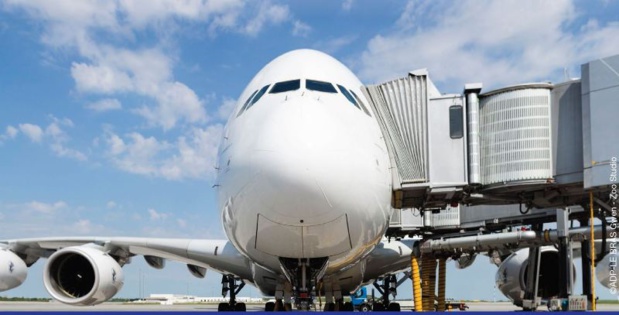







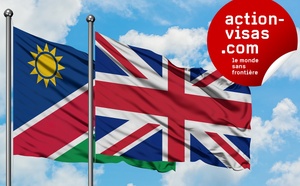
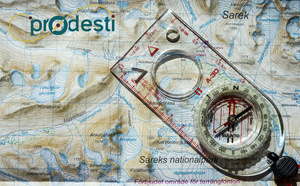






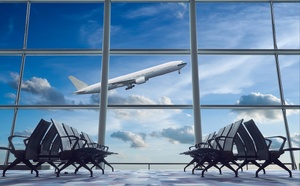




![Wellness et spas : une explosion de créativité et de sérieux [ABO] Wellness et spas : une explosion de créativité et de sérieux [ABO]](https://www.tourmag.com/photo/art/large_16_9/87510784-62068533.jpg?v=1743172978)
